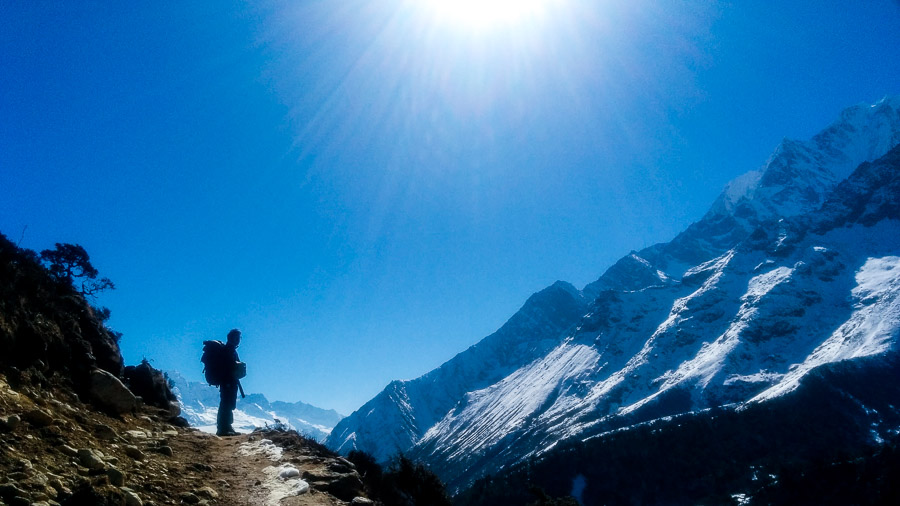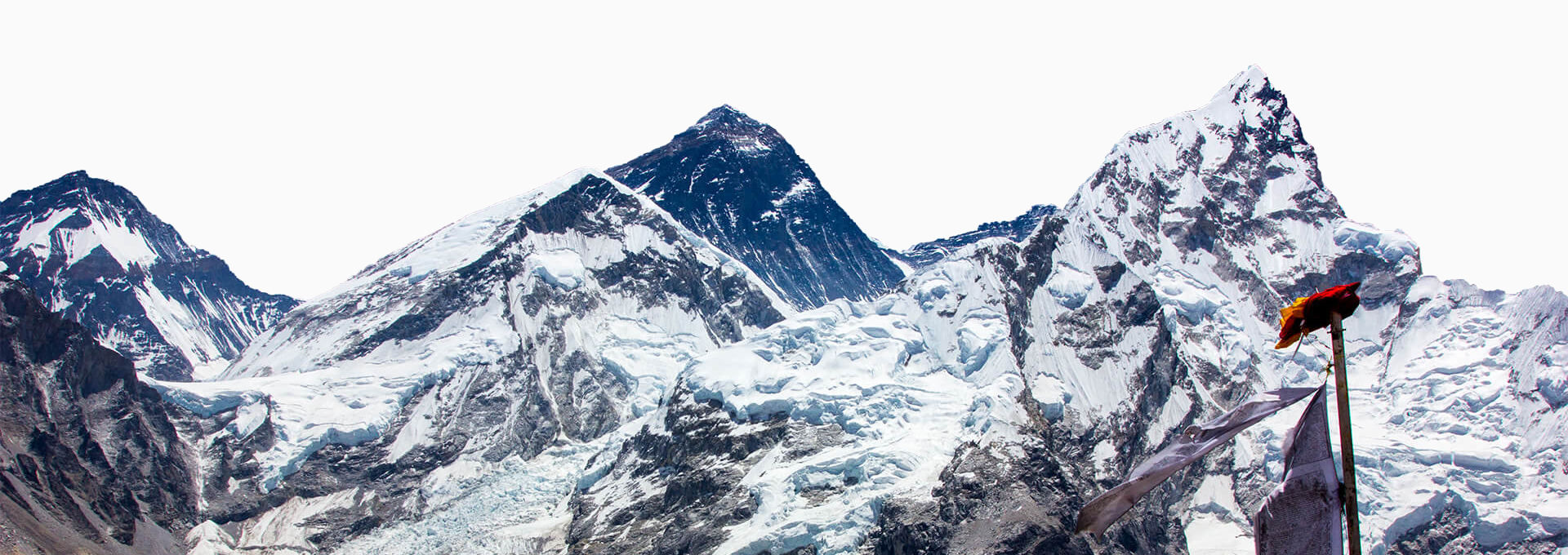
Dear all,
The relationship between HoneyGuide and the people of Khumbu goes back a long time. Over the years, we have worked together to:
- Create a booking system that gives guides and lodges more control over their work by removing intermediaries. This allowed them to communicate directly with trekkers to set their own terms at their own prices. See Lukla Guide Listing and Lodges in Namche.
- Help raise awareness on why replacing the TIMS Permit with the Khumbu Permit was key for both locals and travelers to get more from mountain tourism. See Video.
- Raise awareness that charging for rooms in the Khumbu area was motivated by a need to maintain local livelihoods and not by greed. See Post.
- Digitize tourism services in Khumbu to help residents modernize their businesses. See Activities.
As the Everest region began to reopen for domestic travel this year, we began working with our partners in the Khumbu region once more to revive their main source of income: tourism. However, we understand that while reviving tourism is necessary for the livelihoods of many, so is the need to keep mountain communities safe.
As such, before launching our campaign, we carefully considered different safety protocols both to protect mountain communities and our travelers.
For the Trek:
- We encourage small private groups of 3-6 rather than large mixed ones, with no restriction on minimum group sizes. This way, we can ensure maximum oversight of trekkers and reduce any risks of overcrowding.
- To reduce person-person contact, we provide all of our guests on the Everest Family Trek with a room with an attached bathroom. We also encourage guests on other treks to upgrade to rooms with attached bathrooms whenever feasible.
- We work exclusively with hotels that have shown the capacity to provide a clean and safe environment for guests. This includes maintaining sanitizers in dining rooms, regularly cleaning public places, changing sheets, maintaining social distancing, and wearing masks.
For PCR Tests:
- We worked exclusively with the Central Diagnostic Laboratory for PCR Tests, one out of nine Category-A laboratories in Nepal (Link), and one of the best-reputed labs in South Asia. However, due to the recent decision by Khumbu Gaupalika specifying we work with labs mandated by the Rural Municipality, we extended our testing facilities to some that are not Category-A labs.
- While airline standards suggest taking PCR tests within 72 hours of flying, we encourage our guests to take the test 24 hours beforehand to ensure test accuracy and protect passengers in case of flight delays.
- We give our guests the option of taking the PCR test at their own home to reduce the risk of infection by visiting a lab or hospital.
General Safety Practice:
- Our airline partner Summit Air follows all the protocols laid out by CAAN in its Standard Operating Procedure, including face shields, masking, social distancing, and disinfecting aircraft. See Document
- Once arriving in Lukla, we instruct our guests to avoid unnecessary contact with the local community.
Given the recent COVID-19 cases in Khumbu, followed by panic closing and reopening the region, we understand that the people of Everest fear for their safety. As such, if the ultimate verdict is to close Khumbu for this year, and even next year, we stand by those in authority. However, if the verdict is to gradually ease restrictions and implement a Standard Operating Procedure for Mountain Travel, we will support that too.
While we do not have the mandate to implement such a procedure, we would love to do our part to draft and implement it. This in mind, we have the following suggestions:
- Use Category-A laboratories that do external quality assessment for PCR Tests. The list is here. Please note that the quality of the hospital has nothing to do with the quality of their lab. Also, external quality assessment requires labs to regularly send their test samples to other labs for cross-checking.
- To control against the potential for fake PCR tests, once the municipality counter in Lukla receives PCR test reports, cross-check their validity at random by calling up labs to verify the results.
- From our interaction with people in Lukla, people coming in by foot are of a bigger concern than people arriving by air, who have taken PCR tests. As such, we suggest setting up a swab collection center in Lukla to screen people coming in by foot. Such a center could also be used to test guides and porters that accompany trekkers and retest any people arriving by air. We are happy to coordinate with Category-A laboratories in Kathmandu to help in this process.
- Require airlines to hand infographics of Standard Operating Procedures to all travelers. We believe NTB is working on such an infographic. HoneyGuide can work with our partnering airlines and guests to distribute hard copies of the infographics at our own cost.
- Require everyone, including travelers, guides, and porters, to mask up at public places in settlements.
- Implement a Standard Operating Procedure for Trekking Guides and Porters. This includes: using Lukla-based guides as much as possible, ensuring guides get PCR tests, limiting interaction with people outside the group, and masking. If needed, we can help not just in drafting the protocol but also in training and implementation.
- Implement a Standard Operating Procedure for Hotels in Khumbu. In particular, we suggest paying attention to the following: cleanliness of all common and private areas from rooms to public bathrooms and toilets, maintaining social distancing, ensuring adequate airflow into closed environments like dining halls, and careful information collection for contact tracing.
In many ways, Khumbu has always shown the way for mountain tourism in Nepal. Whether it be balancing local needs with nature conservation, removal of useless permits, or ending the practice of free rooms, Khumbu has been the leader. We see no reason why it will be any different this time around.
And as always, HoneyGuide will be there to help.
To the Mountains,
HoneyGuide
Feedback on Mountain Tourism Protocol
Original Document can be found here:
Please note that we are also involved in drafting the Mountain Tourism Protocol and have made the following recommendations to the team that is responsible for the document:
Choice of PCR Testing Facilities in Kathmandu:
- Understand that while PCR tests under ideal conditions are close to 100% accurate, the way the samples are collected and in-lab contaminations can impact the accuracy of the result. Also please note that PCR test can show a false negative even for an infected person if the test is taken within 4 days of infection.
- It is better to choose Category-A Labs for this. See list here.
- Labs that have Regular External Quality Assessment should be prioritized.
- Finding ways to give validity to digital reports to reduce unnecessary movement for travelers.
- At home testing service should be encouraged to reduce trips to hospitals / labs.
Role of Local Government Bodies
- Provide certification to local guides, hotels after completion of Covid training.
- Provide on-site swab collection facility for testing guides, porters, and travelers.
- Strictly enforce the list of labs whose PCR tests are to be deemed valid.
- Randomly cross check reports with the labs to eliminate forgery.
- Ensure ways to ensure that guests are spread across different hotels that meet the safety standards.
Role of Trek Operators
- Encourage small private groups rather than large mixed groups.
- Provide COVID Insurance to all staff members
- Provide clients with printed infographics and/or briefings on the do’s and don’ts of mountain travel.
- Include masks, sanitizers, and infrared thermometers in addition to the usual first aid kit.
- Maintain a logbook of the whereabouts of all clients.
- Encourage clients to take the PCR test as late as possible before departure and ensure they socially isolate themselves after giving samples.
- Inform clients on what ct values in positive PCR test results mean. Ct value < 30 is infectious while those above 30 has a very low likelihood of infecting another person.
Role of Trekking guide
- Keep all members of the group together and avoid contact between members of different groups.
- Ensure masking and social distancing at public places especially where contact with other people is a possibility.
- Should require PCR tests before joining the clients.
Role of Hotels
- After departure of guests: Change sheets, ventilate rooms, disinfect / clean.
- Incentivize use of rooms with attached bathrooms.
- Increase ventilation at dining halls. Implement social distancing and/or masking at dining halls.
- Common bathrooms are where all the shitty stuff is going to be. They need some industrial grade cleaning.
Role of Porters
- Use of plastic sheets around the duffel bag should be encouraged.
- Impossible to isolate porters from different groups while on the trek. The only sensible way is to reduce interactions with the clients and local community as much as possible.







